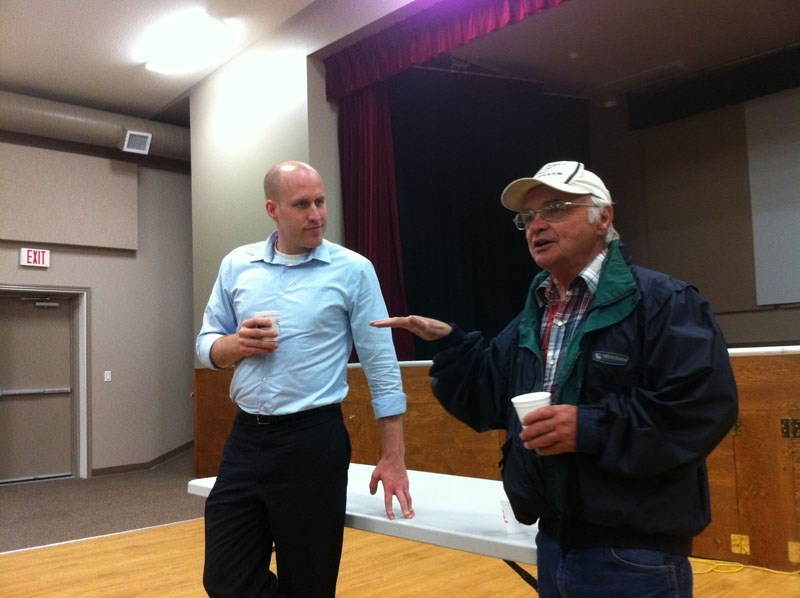The Alberta Surface Rights Group (ASRG) has renewed its call for the Redford government to release a long-awaited pipeline technical safety report.
During an information forum at the Eagle Hill Hall on June 19, ASRG president Don Bester said the delay in releasing the report is hurting public confidence in the safety of the pipeline system, including in West Central Alberta.
“Definitely it is making people wonder,” said Bester. “And not just us, but I think the Americans are wondering why Alberta is not releasing safety reports as well.
“The government has continued to drag its feet on releasing it and opening the review up to public comment. It's seeming more and more like the government is trying to hide something.”
In September 2012 the province's energy regulator hired Group 10 to conduct the technical portion of the pipeline safety review but despite the technical review being done for over six months, the Alberta government has still not publicly released the report, he said.
The ASRG promotes awareness of property owner land and water rights and related issues.
During the Eagle Hill meeting, Bester called for a show of hands from those in attendance who wanted the government to release the report.
“I saw everyone except one person put up their hands,” said Bester.
Anthony Swift, a lawyer with the U.S.-based National Resources Defence Council, was the keynote speaker at the meeting.
The pipeline leak detection system currently in place in Alberta is inadequate and in need of updating, he said.
“Regulations and industry practices are not as strong as they could be,” said Swift. “Across both sides of the border they (leak detection requirements) don't perform particularly well and regulations don't require that they do so.
“They miss four out of five spills greater than 42,000 gallons. So it's not just an issue where they are missing most of the small spills; they are missing a large number of very large spills.”
If early detection systems don't work, “the next line of defence is airplane flyovers and when a spill gets so big that it can be seen from an airplane, it's a little late to be dealing with it,” he said.
Landowners have been found to be the most effective leak detectors, reporting leaks after encountering odours or signs of leaks, he said, “but of course you don't want to rely on the public to find spills in remote areas.”
“One of the reasons leak detection systems don't work particularly well in Canada and the U.S. is that they use a system called ‘mass balance', which is basically a system where if you have a major leak you see pipeline pressure decline,” he said.
“But the thing is that only works if there is a catastrophic leak; pressure will maintain if there is a small rupture.”
Current Canadian requlations require a leak of five per cent (of pipeline flow-through) to be detected in five minutes, he said.
“But leaks between two and five per cent of a pipeline's capacity (need to be detected) within a week,” he said. “So there's a big drop-off. And leaks between one and two per cent capacity need to be detected within a month, and leaks of less than one per cent have no regulatory requirement that that leak needs to be detected.”
As for the technical review report that the ASRG is calling on the province to release, Swift said, “it's been ready for six months. From what I understand, the Energy Resources Conservation Board's rationale for withholding it from the public is that it's a technical document and it needs time to digest it.
“The counter-argument to that is that you wouldn't expect the pipeline safety specialists would need more time to digest it than the public would.”
Swift said the “public can play an important role” in pipeline safety by pushing politicians into tightening up regulations and increasing enforcement.
“Tighter regulations won't drive companies away,” he said. “There are only so many shows in town and Alberta is one of the big shows.
The public should also be more involved in decisions regarding the placement of future pipelines, he said.
Wayne Johnston, who lives downstream of Sundre near the Red Deer River, says the oil companies have been reluctant to adequately address public concerns.
“You can stick their noses in it and they won't listen,” said Johnston.



